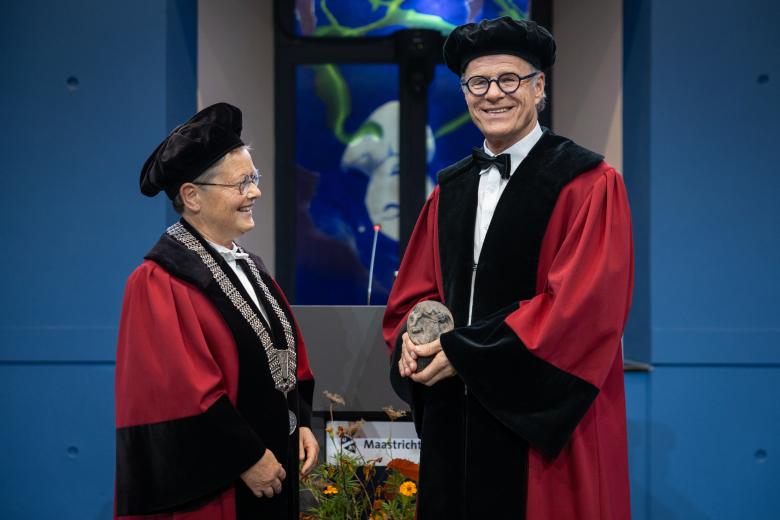The Digital Services Act against conspiracy theories: How EU policies tackle online misinformation
As misinformation and conspiracy theories continue to shape public discourse, efforts to combat their spread have become more critical than ever. In the context of growing concerns about digital platforms’ influence, Studio Europa Maastricht spoke with Jan-Willem van Prooijen, Professor of Radicalisation, Extremism, and Conspiracy Thinking at Maastricht University, and one of the authors of our new policy brief collection on digitalisation. We discussed how the EU’s Digital Services Act is dealing with reducing misinformation and conspiracy theories on social media.
Likes vs. truth
In his policy brief, Van Prooijen argues that, contrary to popular belief, misinformation and conspiracy theories are predominantly spread by human users rather than algorithms:
“People talk about algorithms like they’re something evil, but how harmful algorithms are depends on how they are programmed, and they are programmed differently on each platform. This is, of course, an area where the Digital Services Act can play a role, but even so, research shows that algorithms do play a role in the spread of misinformation—it’s just not the most important factor. Misinformation and conspiracy theories are primarily spread by humans. Algorithms mostly pick them up if humans read them and are interested in them.”
Read the entire interview with Jan-Willem van Prooijen on Studio Europa Maastricht's website.

Also read
-
Steel tariffs explained: Why is the EU doubling them — and at what cost?
The EU announced last week that it would double its tariffs on steel to 50 percent, bringing them in line with US levels. Studio Europa Maastricht spoke with Mark Sanders, Associate Professor of International Economics at Maastricht University about the latest developments surrounding the increase...

-
Professor Frederik-Jan van Schooten receives MUMC+ honorary medal
Frederik-Jan receives the medal for his exceptional contributions to early detection of diseases and a safer living environment.

-
ERASMUS+ - free movement of ideas and skills
Under ERASMUS+, the European Commission's mobility programme for education and training, UM sends and receives more students than any other Dutch university. President Rianne Letschert on her own ERASMUS experience, the benefits of leaving your comfort zone, and being inspired by different...
